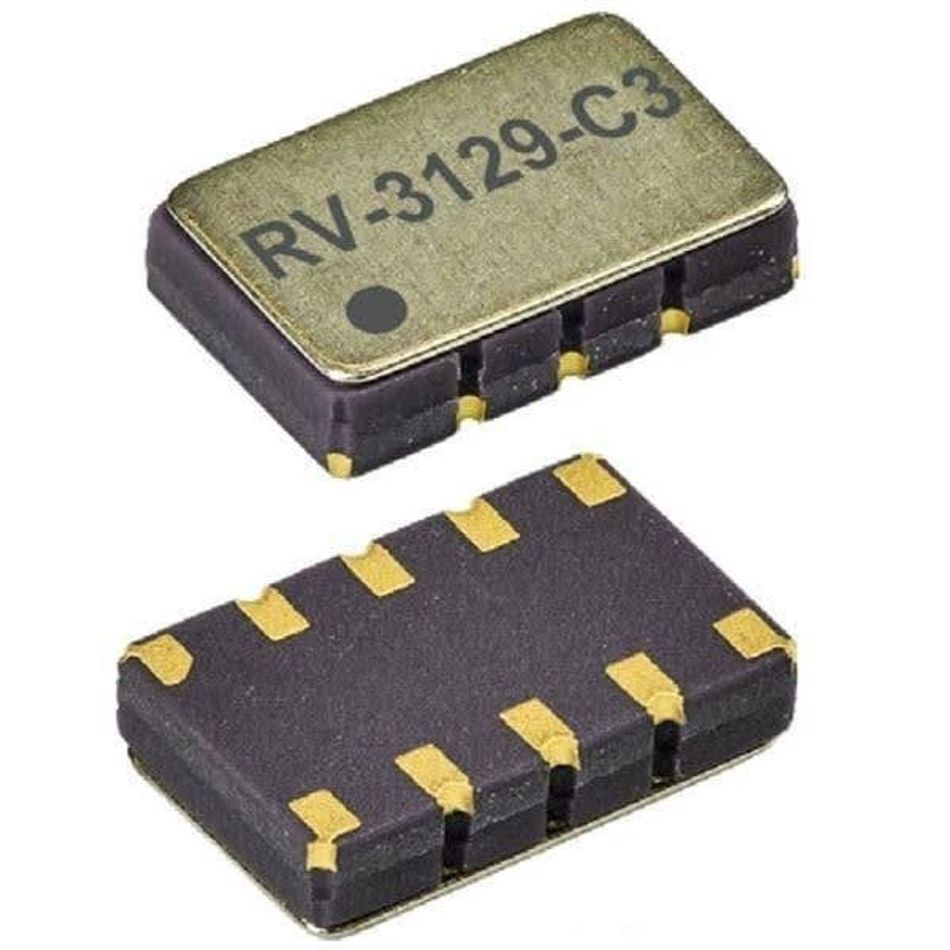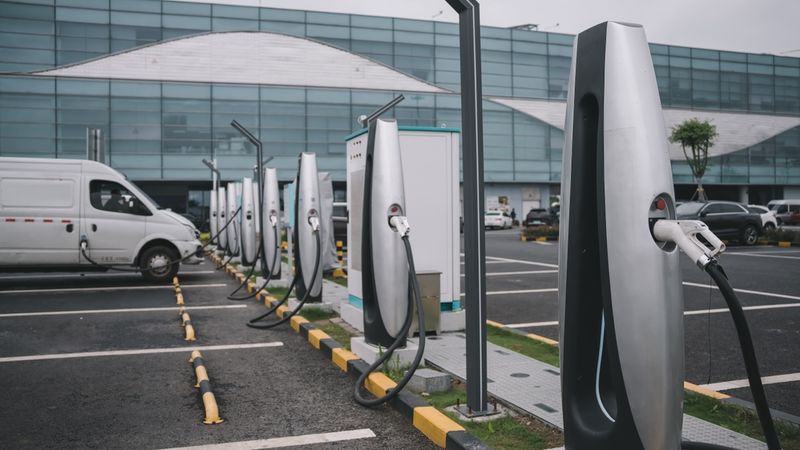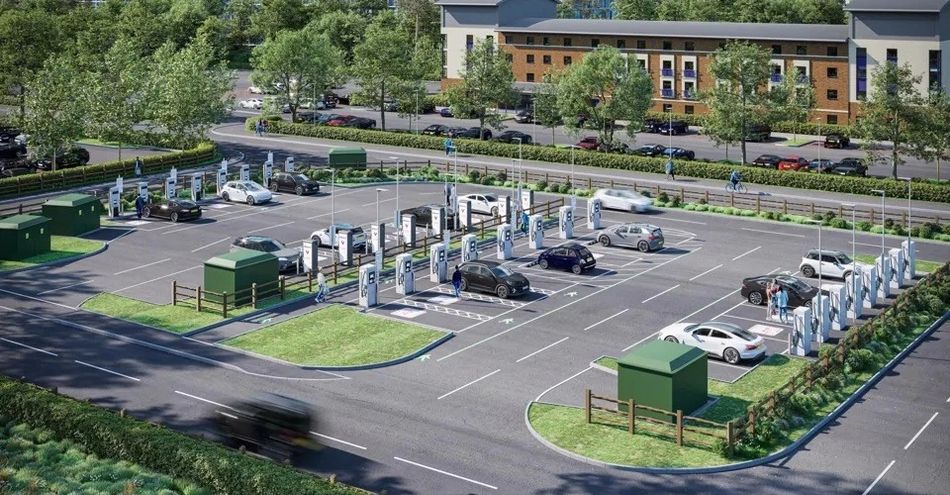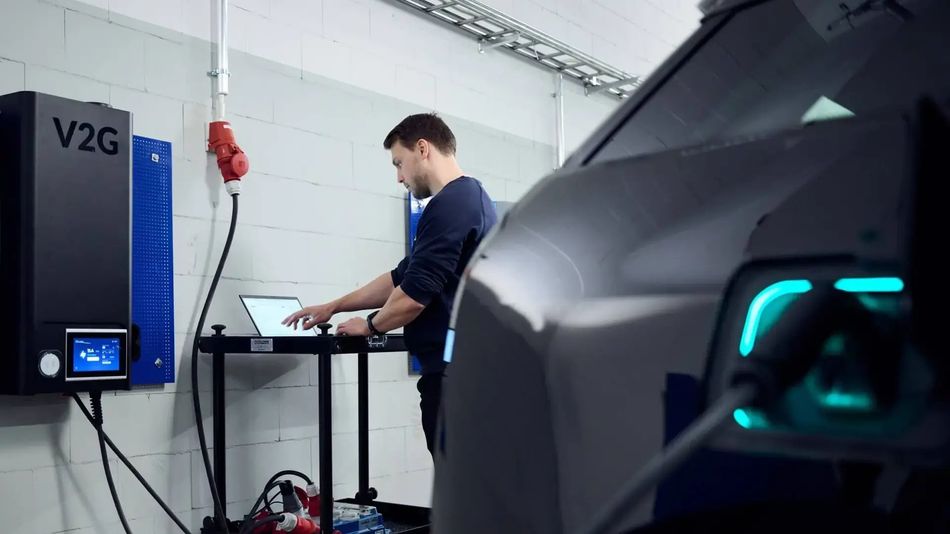Enhancing EV Charging Infrastructure with Precision Timing of The RTC Modules
This article discusses how RTC modules enhance EV charging infrastructure and the role of Micro Crystal, a leading provider of automotive-qualified RTC modules, in providing highly reliable, low-power timing solutions.
The electric vehicle (EV) market is growing swiftly, with global sales reaching 4.1 million units in the first quarter of 2025—a 29% increase compared to the same period last year. China led the growth with a 36% rise in sales, whereas Europe and North America followed with 22% and 16% increases, respectively. This expansion reflects strong consumer demand, supportive policies, and ongoing advances in EV technology. However, with such growth, the demand for reliable and widespread charging infrastructure is also rising since reliable, widely accessible, and high-performing charging stations are critical to ensure user confidence and promote broader EV adoption. Moreover, along with simply providing energy, modern EV charging infrastructure must integrate advanced features like smart energy management, load balancing, and user-friendly interfaces to meet growing expectations.
However, building and maintaining an efficient Electric Vehicle Supply Equipment (EVSE) network has certain challenges. For instance, operators must ensure uptime in harsh environmental conditions, manage power consumption effectively, and provide smooth communication between vehicles, stations, and energy grids.
In this regard, Real-Time Clocks (RTCs) are one of the essential components that enable smarter and more efficient EV charging systems. These modules provide critical timekeeping capabilities that are fundamental to EVSE designs. This article discusses how RTC modules enhance EV charging infrastructure and the role of Micro Crystal, a leading provider of automotive-qualified RTC modules, in providing highly reliable, low-power timing solutions that support the efficiency, durability, and smart functionality required in modern EV charging systems.
Anatomy of an EV Charging Station
EVSE systems comprise a network of components that work harmoniously to deliver efficient charging. These components typically include power stages that manage AC/DC conversion and regulate voltage and current; relays that control the flow of electricity; smart meters for energy usage tracking; communication lines for data exchange with the grid or backend systems; and user interfaces such as displays and card readers that facilitate interaction and authentication.
These systems coordinate via microcontrollers (MCUs), which serve as the central processing units of the EV charger and are responsible for orchestrating real-time decisions like activating relays and processing payment information. These systems should maintain continuous uptime and handle power management smoothly, even during transitions such as grid fluctuations or scheduled downtime.
This is where RTCs, especially temperature-compensated crystal oscillators (TCXOs), come into play. The operating environment can vary dramatically within the EVSE, particularly in outdoor or semi-exposed installations. Temperature-compensated RTCs maintain precise timekeeping by compensating for temperature fluctuations, ensuring that time-based operations such as event logging, fault diagnostics, and system resets occur accurately regardless of ambient conditions. For example, Micro Crystal’s RV-3032-C7 is a low-power, temperature-compensated RTC module that offers a tight frequency tolerance and robust performance across a wide temperature range, making it ideal for integration into the timing architecture of EV charging stations.
RTCs also support synchronization during periods of disconnection or inactivity. For instance, when an EVSE is temporarily offline or placed in standby mode, a high-precision RTC can continue tracking time autonomously, allowing the system to resume operations with full temporal context once reactivated. This capability is fundamental to maintaining coordinated function without relying solely on network time updates.
Real-Time Clocks in Smart Metering and Grid Synchronization
Smart meters in modern EVSEs act as the intelligence hub for monitoring energy consumption, ensuring accurate billing, and enabling communication with the utility grid. Energy management should be precise and transparent in EVSE systems. Smart meters help track energy and provide real-time updates for usage patterns and grid interactions.
However, smart meters must maintain continuous operation to deliver reliable data, especially during unexpected power outages or network disruptions. In such situations, RTCs preserve accurate timekeeping independently of external power sources or connectivity. RTCs allow smart meters to timestamp energy usage data correctly by maintaining an uninterrupted, highly accurate internal clock, ensuring that no information is lost and that all metering and reporting functions are synchronized with the broader grid system once power is restored.
The reliability and accuracy of RTCs become more important in harsh operating conditions, where environmental factors like temperature fluctuations could compromise system performance. Micro Crystal’s RV-3129-C3 and RV-3149-C3 modules are designed to address these challenges. These modules minimize time deviation to only ±8 ppm even at elevated temperatures of up to 125 °C, far exceeding the traditional industrial standard of 85 °C. This ensures that smart meters installed outdoors or in rugged environments maintain precise timekeeping over long periods without requiring frequent recalibration or maintenance.

Time-of-Use Billing and Energy Efficiency
Managing energy demand efficiently is critical to maintaining grid stability and keeping operational costs under control. In this regard, one of the key strategies used by utilities and charging station operators is Time-of-Use (TOU) billing. TOU tariffs vary electricity prices depending on the time of day, encouraging EV owners to charge their vehicles during off-peak periods when energy is more abundant and affordable. This reduces strain on the grid during peak hours.
RTCs allow EV charging stations to schedule charging activities with high precision to make full use of TOU pricing models. High-accuracy RTCs ensure that charging operations are precisely aligned with TOU rate windows. Independent and accurate timekeeping allows EVSE systems to automatically defer charging to more economical periods without requiring constant cloud synchronization.
The RV-3032-C7 module is well-suited for this task as it features timekeeping stability with an accuracy of ±2.5 ppm across temperature fluctuations and guarantees the reliability of scheduling algorithms in a wide range of environmental conditions. This minimizes cumulative drift over time, ensuring that charging sessions consistently start and stop exactly when intended. The integration of precision RTCs like the RV-3032-C7 enables charging providers to optimize energy efficiency, enhance user satisfaction with lower costs, and contribute to a balanced and resilient power grid.
Off-Grid and Remote Charging Applications
Electric vehicle (EV) charging stations have expanded beyond urban centers to remote areas, underground parking structures, and rural environments. These locations face challenges like inconsistent communication signals, limited connectivity to centralized networks, and harsher environmental conditions. In such scenarios, maintaining precise operational timing becomes a hurdle without reliable access to cloud services or continuous grid connectivity.
RTCs tackle these challenges through accurate, autonomous timekeeping. RTCs ensure that scheduled tasks like access control, local billing, and load management proceed without interruption, even when a station is isolated from the broader network. This ability is vital for supporting advanced functionalities like bidirectional charging, where vehicles can supply power back to the grid (Vehicle-to-Grid, V2G) during emergencies or peak demand periods. Coordinating such operations depends heavily on precise, standalone timing to align energy transactions accurately.
For instance, RV-8803-C7 is a highly robust RTC that combines ultra-low power consumption with an extended operating temperature range. Its integrated I²C interface enables easy communication with the local control systems of off-grid charging stations, facilitating real-time decision-making without the need for constant external synchronization. Its autonomous operation and environmental resilience make the RV-8803-C7 ideal for remote or underground EVSE deployments.
Enhanced Functionalities and Edge Computing
Decentralization and local intelligence, commonly referred to as edge computing, enable real-time data processing and smart decision-making directly at the charging station, reducing reliance on centralized servers and cloud communication. In this regard, RTC modules play an important supporting role by offering precise, autonomous timekeeping essential for timestamping local events, coordinating operations between components, and maintaining system integrity during network disruptions.
Modern RTC modules like Micro Crystal’s RV-3032-C7 incorporate additional functionalities that bolster local intelligence. For example, integrated 12-bit digital temperature sensors allow charging stations to monitor ambient and internal temperatures directly at the hardware level. This functionality of RV-3032-C7 can trigger thermal management routines or issue alerts if conditions exceed safe operating thresholds, protecting sensitive electronics and ensuring operational safety without requiring cloud-based oversight. This combination empowers EVSE systems to manage time-based tasks and environmental factors locally, which enhances responsiveness and energy efficiency while minimizing system complexity and external dependencies.
Reliability, Certifications, and Automotive-Grade Performance
Certified RTC modules that comply with standards, such as AEC-Q200, are specifically tested for automotive environments, undergoing rigorous validation for temperature extremes, mechanical shock, vibration, and electrical stress. The rigorous testing ensures the reliability of these RTC modules under harsh operating conditions. Moreover, adherence to Production Part Approval Process (PPAP) requirements ensures that the modules are manufactured through tightly controlled processes to guarantee consistent quality and performance across high production volumes.
Micro Crystal adheres to globally recognized quality management systems, including ISO 9001, ISO 14001, and IATF 16949. These certifications validate Micro Crystal’s manufacturing excellence and give EVSE manufacturers confidence in the traceability, environmental responsibility, high quality, and reliability of the RTCs integrated into their systems.
High-reliability RTCs contribute directly to the longevity and robustness of EV charging infrastructure. These modules help reduce the need for costly maintenance interventions and protect against data loss or corruption by maintaining accurate timekeeping across years of operation despite temperature shifts and electrical noise.
Development and Integration Support
Micro Crystal offers a range of development resources tailored to engineers’ needs to simplify and accelerate the integration of RTC modules into EV charging systems. Their demo boards provide a hands-on platform for rapid prototyping, which allows engineers to evaluate RTC performance, power consumption, and communication interfaces in real-world conditions without needing extensive custom setup.
Micro Crystal’s GUI tools offer an intuitive way to configure RTC settings, monitor operation, and fine-tune parameters like alarms, temperature compensation, and calibration. These user-friendly interfaces reduce the learning curve and help teams quickly optimize RTC behavior for specific EVSE applications.
Moreover, Micro Crystal also provides Linux and Windows drivers to streamline development workflows. Engineers can smoothly incorporate RTC modules into a variety of system architectures with these drivers, minimizing time spent on low-level code development and debugging. This comprehensive ecosystem of tools and support materials ultimately enables faster project timelines, enhances reliability during system validation, and ensures smoother scaling from prototyping to full deployment in EV charging infrastructure.
Conclusion
Building smarter, more resilient, and energy-efficient EV charging infrastructure is imperative for EV market growth. RTC modules play an important role in this regard by providing precise, autonomous timekeeping that supports key functions like smart metering, load management, time-of-use billing, and edge computing. Moreover, RTCs are central in maintaining uptime in harsh environments, supporting intelligent decentralized decision-making, and enhancing the overall reliability and efficiency of modern EV charging stations.
Micro Crystal’s automotive-grade RTC modules, with their precision, low power consumption, and rugged performance, offer an ideal solution for the timing challenges in EVSE designs. Micro Crystal empowers engineers to accelerate development and boost system reliability with comprehensive support tools and industry-leading certifications.
Visit Micro Crystal’s website to explore their full range of automotive-qualified RTC modules and discover how their solutions can help you build smarter, more efficient, and future-ready EV charging infrastructure.
Reference
Micro Crystal. [Online] Available at: https://www.microcrystal.com/en/ (Accessed on April 20, 2025)
RV-3032-C7 [Online] Available at: https://www.microcrystal.com/en/products/real-time-clock-rtc-modules/rv-3032-c7 (Accessed on April 20, 2025)
RV-8803-C7 [Online] Available at: https://www.microcrystal.com/en/products/real-time-clock-rtc-modules/rv-8803-c7 (Accessed on April 20, 2025)
RV-3129-C3 [Online] Available at: https://www.microcrystal.com/en/products/real-time-clock-rtc-modules/rv-3129-c3 (Accessed on April 20, 2025)
RV-3149-C3 [Online] Available at: https://www.microcrystal.com/en/products/real-time-clock-rtc-modules/rv-3149-c3 (Accessed on April 20, 2025)
Using Micro Crystal Real-Time Clock Module in EV charging station. Micro Crystal. [Online] Available at: https://www.microcrystal.com/fileadmin/Media/Products/RTC/Whitepapers/Use_case_-_RTCs_in_EV_charging.pdf (Accessed on April 20, 2025)
Global EV Sales Up 29% In 2025 From Previous Year. (2025) Rho Motion. [Online] Available at: https://rhomotion.com/news/global-ev-sales-up-29-in-2025-from-previous-year/ (Accessed on April 28, 2025)



